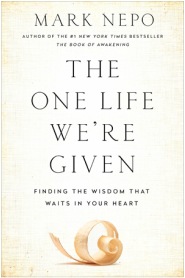 A troubled widower made his way to ask a wise old woman about his troubles. The old woman received him and they walked along a stream. She could see the pain in his face. He began to tremble as he asked, "What's the point? Is there any meaning to life?" She invited him to sit on a large stone near the stream. She took a long branch and swirled it in the water, then replied, "It all depends on what it means to you to be alive." In his sorrow, the man dropped his shoulders and the old woman gave him the branch. "Go on," she said, "touch the branch to the water." As he poked the branch in the running stream, there was something comforting about feeling the water in his hand through the branch. She touched his hand and said, "You see, that you can feel the water without putting your hand in the water, this is what meaning feels like." The troubled man seemed puzzled. She said, "Close your eyes and feel your wife now gone. That you can feel her in your heart without being able to touch her, this is how meaning saves us." The widower began to cry. The old woman put her arm around him, "No one knows how to live or how to die. We only know how to love and how to lose, and how to pick up branches of meaning along the way.
0 Comments
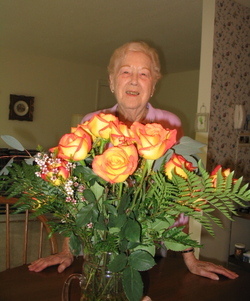 Shloshim is the number 30 in Hebrew, and this past Tuesday morning, immediately following Shacharit, the morning prayers, marked 30 days since my mother Elsie's burial. I have been going to synagogue daily to davven and to say Kaddish for her. When the moment arrives to stand and remember, the service leader asks everyone to share the name of the person whom s/he is saying Kaddish for. I say, "My mother, Elsie Novak, Osnat bat Moshe Bayer haCohen v'Nachuma." The mourners and those observing yahrtzeit proceed to say the words together, the text of the Jewish mantra which dating back to the 1st C BCE, words which serve to sanctify all life, as we gently guide the soul of our loved ones back to their source. While saying Kaddish last night I began to cry. The tears came not from immediacy of my mother's death, that has subsided with time, but rather from a fear that after only 30 days the recitation of the Kaddish was already feeling somewhat rote, routine, and G!d forbid, mundane. I don't want my remembering to become distracted habit, I want it to stay fresh and vibrant and heart-opening. How had 30 days had passed so quickly? The truth of that saddened me. The text of the Kaddish is engraved in me. I do not need to read it from the siddur. יהא שמה רבא מברך... With my hands free my mind began to wander. I heard the echo of a word that my mother used to use: PLICHING When it was raining very, very hard, my mother would say that "it's pliching out." I never had had any impulse to research the origin of the word, but during shiva, when many things have time to surface, I took the opportunity to pick up my English-Yiddish dictionary, and sure enough, there it was: פליוכרעגן (someone please help me with the pronunciation here). I smiled, and acknowledged that it had taken me all of my life to look up the word that my mother used so often. Why had it taken until now? More tears welled up. The Kaddish continued, לעלא מן כל ברכתא ושירתא Another word arose in my consciousness, KAMMONDAVING. My mom used this word to mean making a racket, or commotion, as in "Who needs all that kammondaving around the house." I was less successful finding any origin of this word in the dictionary. Perhaps my mother had made it up? The sense of the word did play a role before shiva started. I had decided that although I would let my various communities know of my loss, I was not going to advertise the times that we would be sitting shiva. I don't like the vibe after prayer, which more often than not turns into a loud social gathering as opposed to being in a house of mourning. I questioned my decision not to make the times public, but at one point realized, "That's my mother! She wouldn't have liked all the kammondaving in the house." Another way that my mother lives on through me. I have 10 months left to say Kaddish for my mom. The ritual will take me through the winter, spring, summer, and fall; through the entire year's cycle of holidays; through planting and tending and reaping and finally again laying to rest my beloved garden; through watching the budding of our lilac tree, until it flowers, when I will bend a branch to my nose, a havdalah moment, and I will gather in my mother's favorite fragrance. I will then say out loud, "Hello Mamale"; through another baseball season where every batter's intention is to circle the bases and return home. עשה שלום במרומיו הוא יעשה שלום... I wipe the tears from my eyes, and a sense of peace comes over me. Death, burial, shiva, shloshim; minyan, kaddish, breathe. אמן Amen  Minyan Oneg Shabbat has been offered a Matching Grant up to $1500. As of 12/11 only $418 more to raise by 12/31! Please consider offering a tax deductible donation of $18 or more to support this project and the work of DC's Jewish Renewal community Minyan Oneg Shabbat. All proceeds go to providing us with rental space and the ability to dream a little bigger. 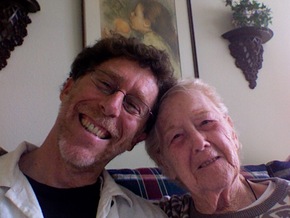 It is now 3 weeks post burial. My chest is a little less heavy, my gait a little freer from the weight of sadness. My beard is sorely in need of trimming, but when I look in the mirror, it doesn't matter, evidenced by the tears that still flow easily as I write this. Luckily, I am frequently in a setting where no one asks about my three weeks of facial hair, I am where everyone knows why my outward appearance is less socially presentable. I am in minyan. As we know, a minyan is necessary for the recitation of certain prayers, among them the mouner's kaddish, an opportunity to sanctify life, and my opportunity to help the return of my mother's soul to its source. Traditionally known as "kaddish yatom", I understand that term more acutely personal now. It is the "orphan's prayer", and I am now without both my mother and father. Reb Zalman would say that I now wear the "white beard". I am the elder. In an interview that she gave after her father died, singer Roseanne Cash shared that, no longer having a living parent, she now felt that "the last barrier between herself and her own mortality had been removed." That powerful insight remained with me, bookmarked for a future date, and was one of the first things that came to mind when my mother Elsie died. This past Sunday morning, as worship began, we only had 9 people. Those of us who were there to say Kaddish were keenly aware of the lack of a quorum to do so. On a weekday someone would have gone across the hall to ask one of the secretaries to join us. But on a Sunday, not so. When we reached the moment to say Kaddish d'Rabbanan, the leader called out a page number that signaled we were skipping Kaddish and moving on to the next section of the liturgy. Immediately, one of the women called out, "Wait, let me see if anyone is coming." The leader paused, and the woman left the room. Those of us remaining sat in silence, and waited - 1 - 2 - 3 - perhaps 5 minutes, before the woman returned with good news in the form of several additional people who were joining us. There was something about the quality of those minutes of silence that deeply resonated within me and between those of us who had sat quietly waiting. Time seemed to stand still. In the stillness I felt held by G!d and community. Reb Zalman teaches a possible understanding for ברוך שם כבוד מלכותו לעולם ועד to be "Your glory shines through time and space." Indeed, in the stillness the glory shined through - so true, so real, so effortless, so comforting. That evening, I returned to shul for Ma'ariv. One woman was saying kaddish for her father. It was her last day, after 11 months, that she needed to do so on a daily basis. She was clearly very emotional, and cried openly. She later shared that it was the anticipation she had about the "last day" that had shaken her. She thanked us all for our presence. I recalled the Kotzker Rebbe's gentle reminder that "there is nothing so whole as a broken heart". I also recognize that there is nothing so whole as a minyan. Ten adult Jews relying on each other's presence - to pray, to remember, to rebuild, to dream awake, and to hold each other in sacred community. My mother, Elsie Novak, died peacefully in her sleep last Thursday evening the 6th of November at 10:10pm, the 14th day of Cheshvan. My mother often shared with me her deepest fear that the death process be a painful one. Thank G!d, it was quite the opposite.
What I sensed over her last few days was that her soul was disentangling itself from her body, as if it were undoing the stitching that attached it to its physical container. In BT Moed Katan 28a, we find this story: “Rava was seated at the bedside of Rabbi Nachman, and he saw that his teacher was dying. Said Rabbi Nachman to him, ‘Please tell the Angel of Death not to torment me.’ To which Rava replies, “Why are you asking me to do this for you? Are you not an ‘adam chashuv’, a person of status? Rabbi Nachman responds and says, “Before the Angel of Death, who is esteemed, who is regarded, who is distinguished?” Rava then says, “Will you show yourself in a dream to me after you die?”, and Rabbi Nachman replies that he will if he can. Sure enough, some time after he dies, Rabbi Nachman appears to Rava in a dream. Rava asks him the question that we would all like to ask if we could. He says to him, “Did you suffer much pain while you were dying?” Rabbi Nachman says; “It was like removing a hair from a glass of milk.” A few years ago I started to include in my daily davvenen, in the paragraph that begins with shma koleynu, my prayer that when it was time for my mother's soul to return to its' source, that it do so without pain, like "removing a hair from a glass of milk." I don't know which hurts more, when prayers are realized or when they are not, because my heart is broken open and my tears flow like rain from the very notion that my prayer has been answered. Thanks to all who have written to express your condolences. Everyone should be as blessed as I am, to feel held in times of sorrow by sacred community, both near and far. I look forward to sharing more with you about my mom in the coming year. |
Mark Novak is a "free-range" rabbi who lives in Washington DC and works, well, just about everywhere. In 2012 he founded Minyan Oneg Shabbat, home to MOSH (Minyan Oneg Shabbat), MindfulMOSH (Jewish mindfulness gathering), and Archives
June 2017
Categories
All
|
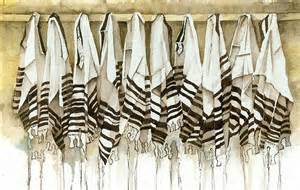
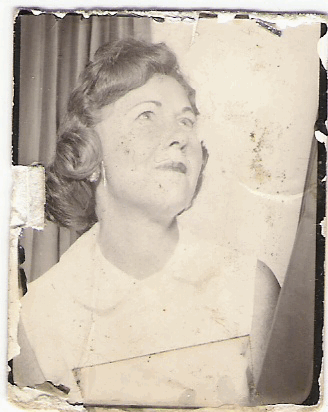
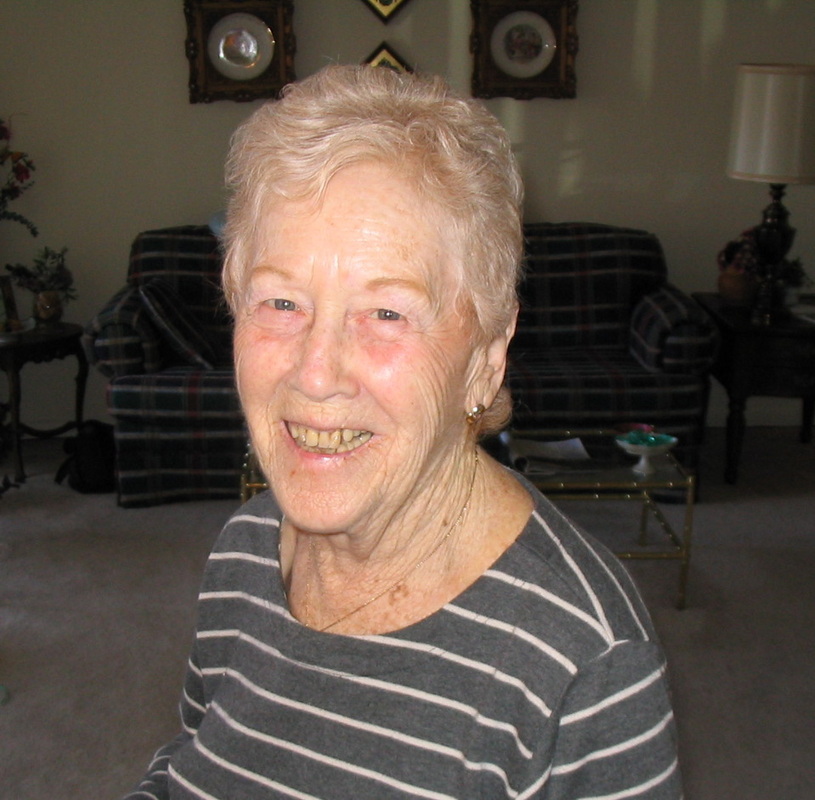
 RSS Feed
RSS Feed
